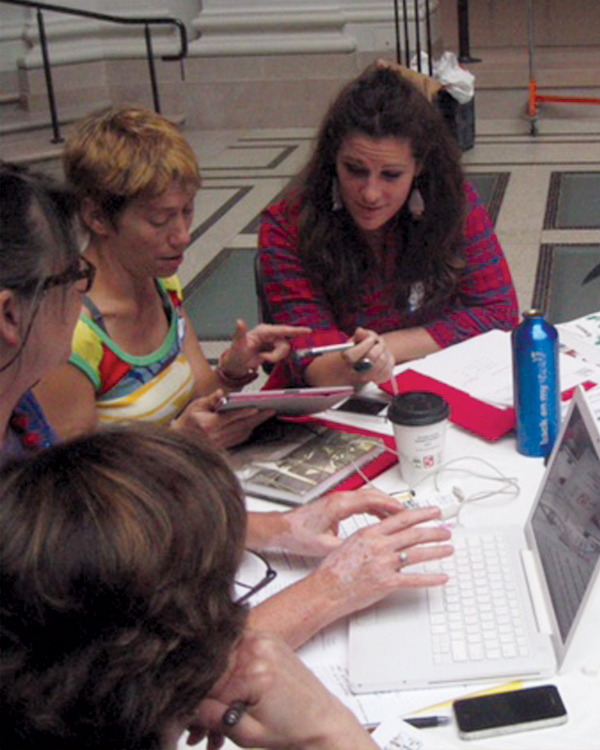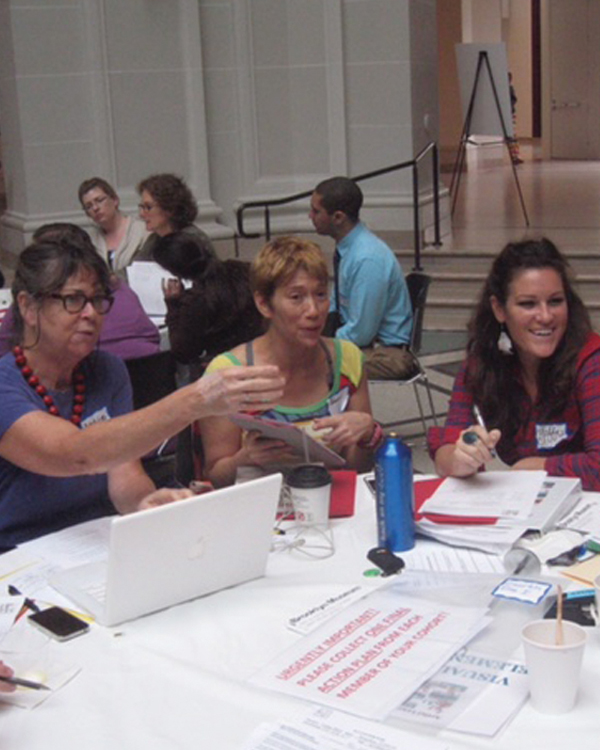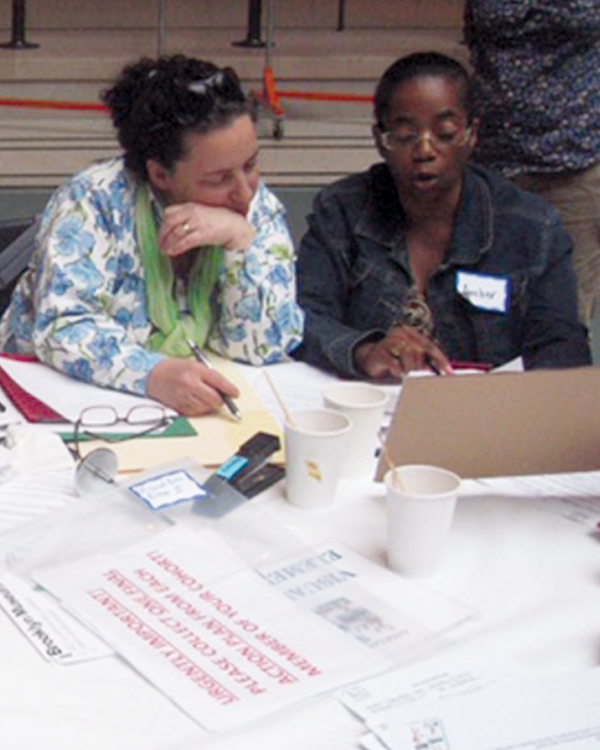Who We Are
The Arts Assessment for Learning website is the product of a partnership between the New York City Department of Education’s Office of Arts and Special Projects and ArtsConnection, a model arts education organization recognized by the U.S. Department of Education (US DE).
Since 2005, the two have collaborated on USDE-funded projects that support the professional development of hundreds of New York City arts teachers.
Learn more about ArtsConnection Professional Learning Resources and Projects
Artful Learning Communities (ALC) are discipline-based professional learning communities engaged in action research focused on the implementation of formative assessment practice in the arts classroom.
The Arts Assessment for Learning website documents the effective practices developed by these Artful Learning Communities. It is made possible by the support of the U.S. Department of Education.
Our Goals:
Arts Assessment for Learning. At the outset of the ALC, the goal was to create supports that would help arts educators do three things: 1) assess their students’ arts learning based on local and national standards, 2) promote their students’ arts achievement, and 3) share their practices with one another.
Our decision to put formative assessment at the center of our work was based on compelling research that strongly indicated that formative assessment, when implemented well, could catalyze improvements in student learning and achievement. Arts teachers who came together in professional learning communities organized by arts discipline and school level discovered this to be the case.
These teachers collaboratively engaged with colleagues in action research and explored formative assessment strategies in their dance, music, theater, and visual arts classrooms. They have been energized and inspired by the results of their work with their students, and we are excited to share their work with the larger community through this website.

The Arts Educators. Beginning in 2008, the project trained peer coaches to mentor arts educators to use formative assessment practices in their classrooms and to document the process. Participants included 96 music, dance, theater, and visual arts specialists teaching 48,000 kindergarten to eighth-grade students in 138 schools in Brooklyn.

Together, these specialists formed discipline-based professional learning communities immersed in action research in their own classrooms and observed, tracked and reported remarkable results in student progress through formative assessment. Teacher practice and student work were guided by the same three guiding principles of formative assessment: use of clear criteria, descriptive feedback and revision.

As educators noted changes in their own teaching practice, they began to move away from teacher-centered practices to more learner-oriented ones. Teachers found themselves using assessment for learning, rather than solely taking measurements of student achievement.
We hope that teachers across the United States and beyond will explore the research, practice, and documentation available here, download tools and insights, and build new communities promoting and studying formative assessment in arts education.
ALC arts teachers discovered that formative assessment was a powerful catalyst for student learning in the arts. Students were challenged to work and think like artists. Students involved in the formative assessment process took more ownership of their art making, demonstrated greater independence, and were more motivated to rethink and revise their work. As a result, they develop more than just content-knowledge and skill sets. They developed authentic artistic voice with decisions of their own making and reflections on their work emerging through responses to critique from a variety of sources.
Formative assessment is best practice in any classroom, but because it builds confidence in one’s own choices, expressions, and articulations, it is especially powerful in teaching in the arts. Formative assessment emulates the creative process and fosters every student’s artistic voice and reinvigorates teacher practice.